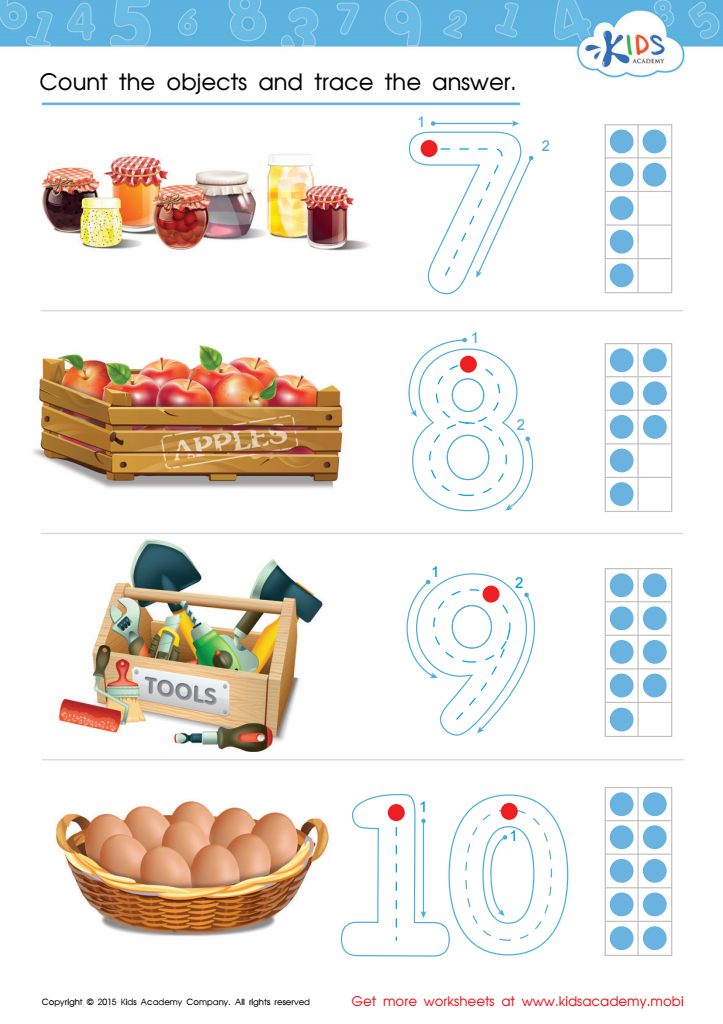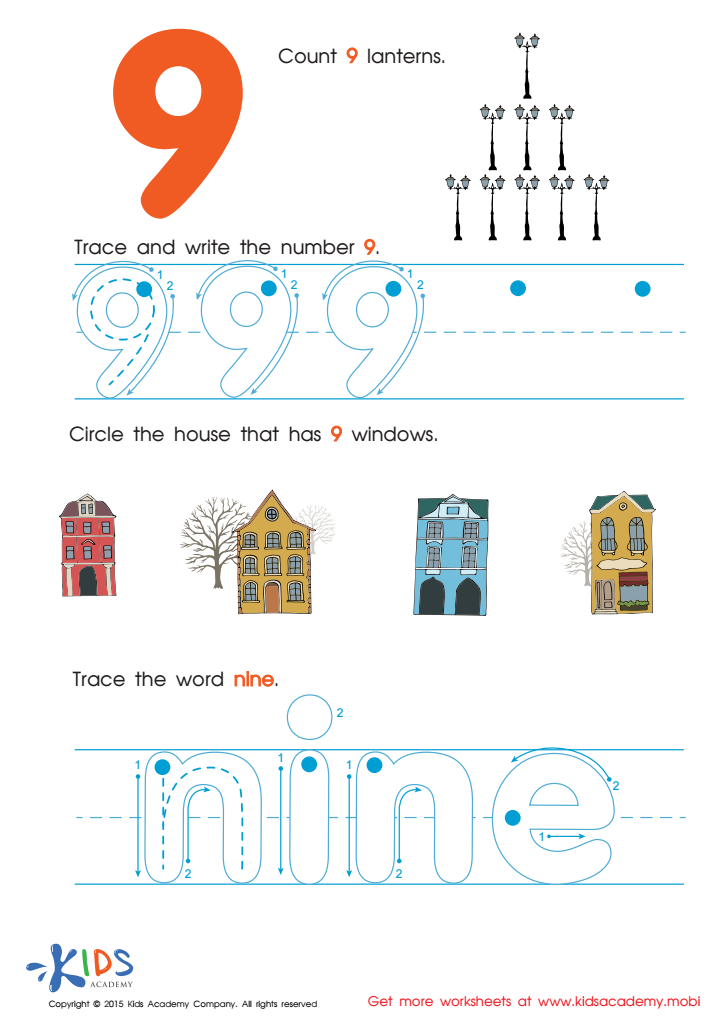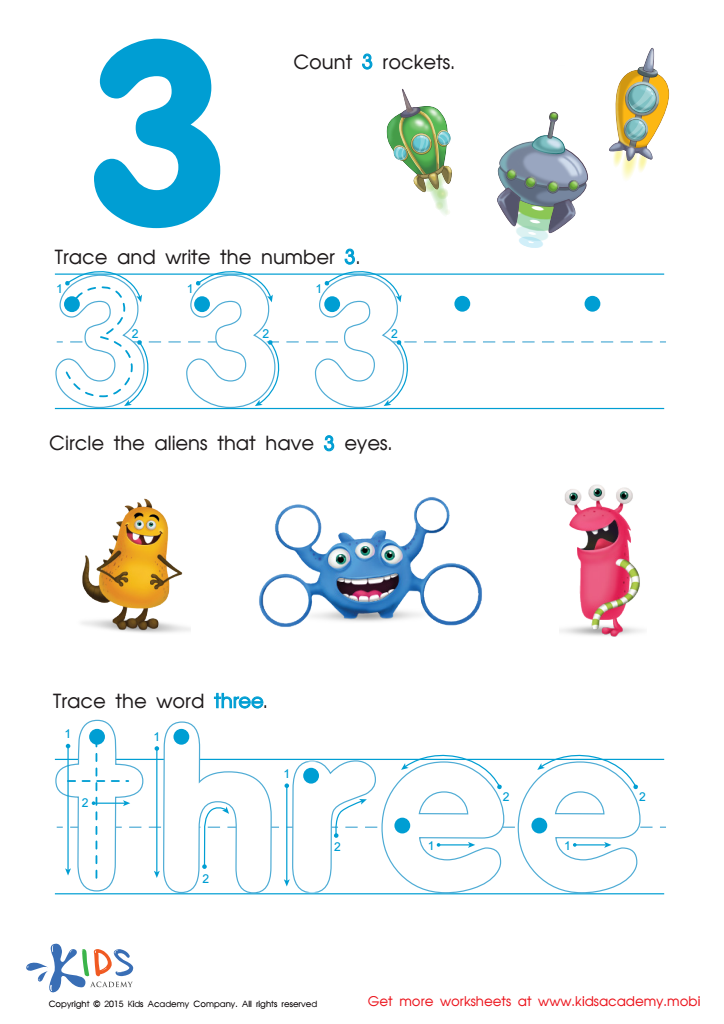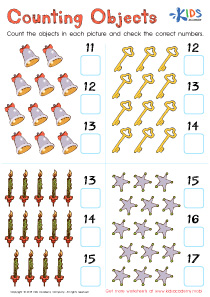Writing practice Normal Tracing Numbers Worksheets for Ages 3-6
3 filtered results
-
From - To
Enhance your child's early math skills with our "Normal Tracing Numbers Worksheets" designed for ages 3-6. These engaging worksheets provide a fun and interactive way for young learners to practice writing numbers. Each worksheet features numbered guides that help children develop fine motor skills and improve their hand-eye coordination while mastering number formation. Ideal for home or classroom settings, this resource supports number recognition and encourages joyful learning. Explore our diverse range of tracing worksheets, tailored to make learning numbers enjoyable and effective. Equip your child with a strong foundation in mathematics as they trace, write, and confidently express their numerical knowledge!


Count and Trace 7 – 10 Worksheet


Tracing And Learning to Write Number 9 Worksheet


Learning Number Three Worksheet
Writing practice, especially tracing numbers, is crucial for children ages 3-6 as it lays the foundation for their mathematical and cognitive development. During these formative years, children are building essential skills that will influence their future learning experiences.
Firstly, tracing numbers helps with fine motor skills, which are vital for writing, drawing, and other hands-on activities. These skills promote hand-eye coordination and strengthen finger muscles, facilitating better control over writing instruments as they progress.
Secondly, practicing number tracing aids in number recognition and understanding numeral concepts. Children begin to learn to identify numbers, associate them with quantities, and comprehend the order of numbers, which is foundational for future math skills.
Additionally, this activity encourages cognitive processing as children focus on forming patterns and shapes—skills that enhance their problem-solving abilities. Providing guided tracing exercises also fosters a love of learning and boosts confidence as they see tangible progress in their skills.
In summary, writing practice through normal tracing of numbers is imperative for developing fine motor skills, number recognition, and cognitive abilities, setting a solid groundwork for future academic success. Both parents and teachers play a vital role in nurturing this fundamental aspect of early education.
 Assign to My Students
Assign to My Students
















